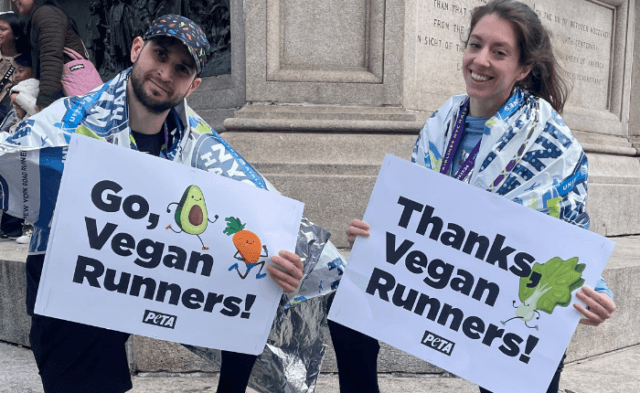Nobel Peace Prize winner Archbishop Emeritus Desmond Tutu recently made a compelling case for including animals on our moral radar. In the foreword to a new book about animal rights, he writes: “I have spent my life fighting discrimination and injustice, whether the victims are blacks, women, or gays and lesbians. … I have seen firsthand how injustice gets overlooked when the victims are powerless or vulnerable, when they have no one to speak up for them and no means of representing themselves to a higher authority. Animals are in precisely that position. Unless we are mindful of their interests and speak out loudly on their behalf, abuse and cruelty go unchallenged.”
He adds, “It is vital … that these instances of injustice not be overlooked.” We should remember his words as we prepare to honor the legacy of another hero in the social-justice movement, Dr. Martin Luther King Jr.
Who among us wouldn’t agree that abuse and oppression are wrong? Yet when I say that I am talking about the animals who are beaten and forced to perform in archaic circus acts, crammed inside filthy cages to produce cheap food or burned, poisoned or mutilated in laboratories, some people waver. It is always hard to look at today’s abuses and imagine them through the more critical eyes of future generations, yet if we believe what Dr. King famously said—that “[i]njustice anywhere is a threat to justice everywhere”—we must do exactly that.
Although animals have wants and needs of their own, they are often treated as nothing more than hamburgers, handbags, test tubes and cheap burglar alarms. They are not allowed to live their lives but, instead, are forced to serve us, giving us carriage rides, performing silly tricks and having their skins used for clothing. We use their flesh as food, even though we can make far healthier choices, and drip chemicals into their eyes to test mascara.
Like Dr. King, I have a dream. I dream that someday there will be no elephants in circuses, kept in shackles, beaten with bullhooks and denied their freedom, all just for a human being’s few moments of odd enjoyment. I dream that steel-jaw traps and fur farms will be outlawed the world over and that all consumers will choose wonderful natural fibers and synthetics over leather. I dream that responsible parents will raise their children to avoid the addiction to meat that has brought us an epidemic of heart attacks, cancer, strokes, diabetes and obesity, as well as causing immense suffering for animals. And I dream that it will be illegal to keep any dog on a chain, shivering through the cold weather while the families they long to interact with enjoy the warmth of their homes.
I believe that most people, when shown how their actions contribute to cruelty and given options, will make compassionate choices. Consider that each of the following statements once would have seemed like pie in the sky even to the most optimistic among us, and yet at the beginning of 2014, they are all true: Harvard University is shutting down its notorious New England Primate Research Center; the former director of the National Institutes of Health has admitted that experimenting on animals hasn’t worked, saying, “We all drank the Kool-Aid on that one”; an elementary school in Queens, N.Y., has become the first entirely meat-free traditional public school; Bill Gates is funding the development of vegan meat and eggs; and hideous glue traps are no longer being sold in more than 40,000 stores.
There is a compassionate alternative to every cruel thing. Every day, our choices either perpetuate needless violence or help stop it. Let’s choose not to be part of cruelty, violence and oppression—in any of their many forms.





